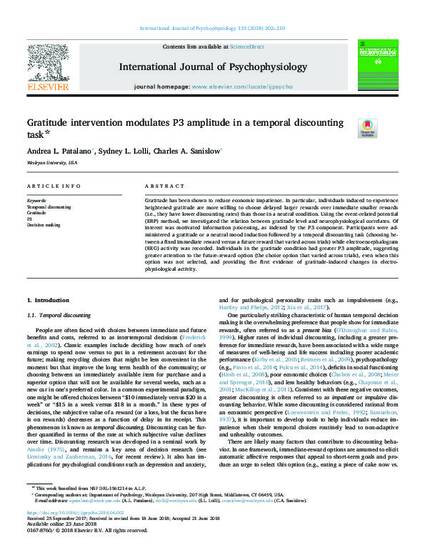
Article
Gratitude intervention modulates P3 amplitude in a temporal discounting task
International Journal of Psychophysiology
(2018)
Abstract
Gratitude has been shown to reduce economic impatience. In particular, individuals induced to experience heightened gratitude are more willing to choose delayed larger rewards over immediate smaller rewards (i.e., they have lower discounting rates) than those in a neutral condition. Using the event-related potential (ERP) method, we investigated the relation between gratitude level and neurophysiological correlates. Of interest was motivated information processing, as indexed by the P3 component. Participants were administered a gratitude or a neutral mood induction followed by a temporal discounting task (choosing between a fixed immediate reward versus a future reward that varied across trials) while electroencephalogram (EEG) activity was recorded. Individuals in the gratitude condition had greater P3 amplitude, suggesting greater attention to the future-reward option (the choice option that varied across trials), even when this option was not selected, and providing the first evidence of gratitude-induced changes in electrophysiological activity.
Disciplines
Publication Date
Summer September, 2018
Citation Information
Andrea L Patalano, Sydney L Lolli and Charles A. Sanislow. "Gratitude intervention modulates P3 amplitude in a temporal discounting task" International Journal of Psychophysiology Vol. 133 (2018) p. 202 - 210 Available at: http://works.bepress.com/charles_sanislow/125/
